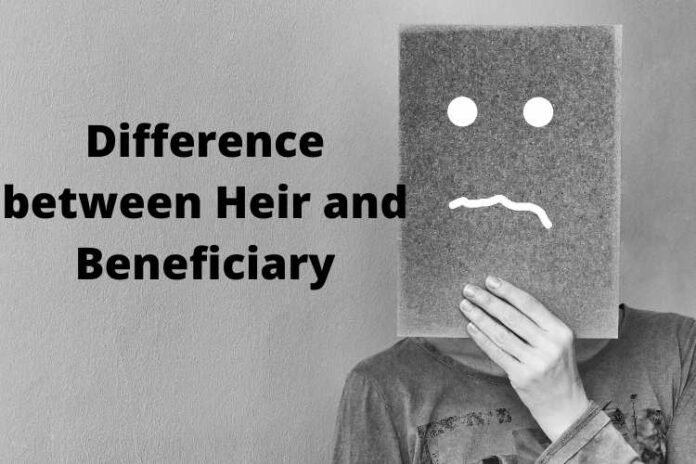After someone dies, in the estate planning process or probate, we hear terms like ‘heir’ and ‘beneficiary’ which are sometimes used by people interchangeably. Some people even don’t know the exact meaning of the terms. So in this article, I will help you understand the meaning of these two words and tell you the difference between Heir and Beneficiary so that you can use them in the right context.
Meaning of Heir
An heir is a person who is related to the dead person by blood. This can include an individual’s wife, parent, or child. But even if someone is a legal heir, they might not be listed specifically in the will. And it means that it is not necessary that if someone is an heir, he or she will receive assets if the person whom he or she was related by blood passes away.
Meaning of Beneficiary
A beneficiary is a person who is particularly listed on the dead person’s will, trust, or insurance policy who will receive his assets when the person dies. The Beneficiary can be a family member, friend, or organization. So, in other words, the beneficiary may or may not be blood-related as it only depends on the deceased person’s will that whom he wants to make the beneficiary who will receive his assets after his death.
Who got the dead person’s assets?
Not all heirs need to be beneficiaries. Legally, when a person dies his or her assets or property is distributed among his or her children, parents, or spouse whosoever is the closer heir but if he or she has prepared a will in which the names are mentioned who will be the recipient of his or her assets after the death then the recipients are called beneficiaries and so in general, the beneficiary can be anyone a family member or his favourite organization or can be distributed in percentage as per the will. But in the case of a spouse, if she is not mentioned in the will, she can claim a percentage of her husband’s property as per the spouse’s rights.
RELATED – Difference Between Cartographer and Photogrammetrist
Dying in Estate or Probate
So if a person is dying without a will, he is said to be dying intestate. And in this case, his property is distributed to his rightful heirs as per the probate court and it consumes time as well. This also results in hurting the feelings of the family members or may create an issue if they all think that they are the rightful heir. Therefore, it is always better to die with a will so it gets easy to distribute the property to the right one whom you want to be the owner of your assets after your death and he will be called as beneficiary.
How do they differ from each other?
The major difference between heir and beneficiary is that if there is no will then the heirs are the beneficiary but if there is a willing heir may or may not be the beneficiary as per the deceased person’s will. The Estate planning process is complicated so it doesn’t always benefit the closer heirs so it always goes better with a will process and this is the reason people make their wills so they can provide extra profits to their loved ones after their death and to secure their future with money they left for them.
RELATED – Difference between Cheap and Frugal
The Final Words
So I hope this article has made it clear that heir and beneficiary are two different terms (Difference between Heir and Beneficiary) that can’t be used interchangeably. However, they are used in the same context but all heirs may or may not be beneficiaries.


